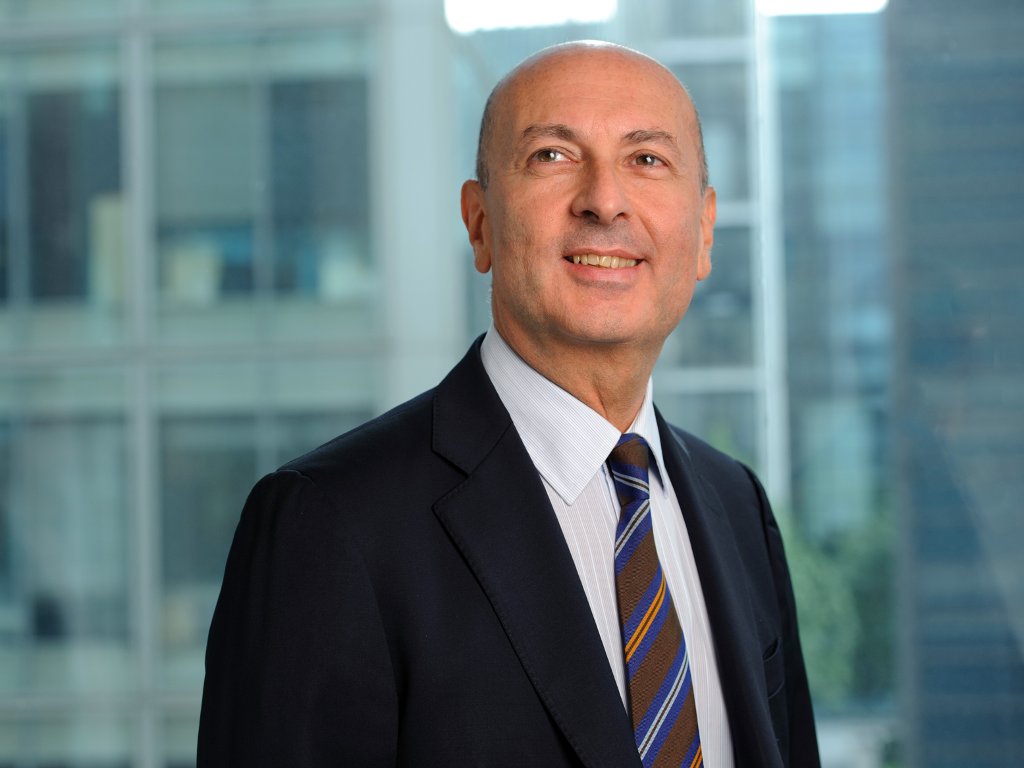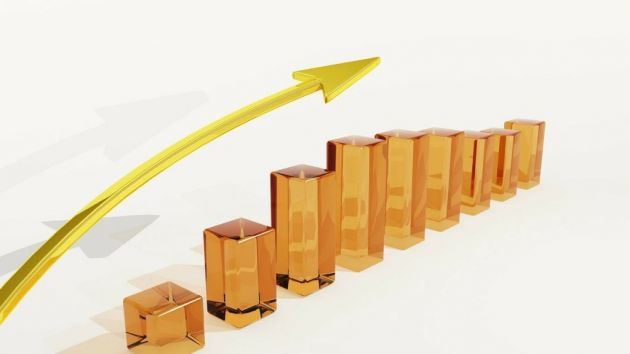Enzo Quattrociocche, Secretary General at EBRD ŌĆō We plan EUR 300 million in annual investments in B&H
 Tuesday, 19.03.2019.
Tuesday, 19.03.2019.
 08:45
08:45

Enzo Quattrociocche, the Secretary General at the EBRD, says in his interview with eKapija that this gathering will once again confirm the importance of the economic integration of the Western Balkans, in order for a quicker and more efficient penetration of the EU market.
For B&H, creating a better business environment and strengthening the private sector in the conditions of a complicated state organization remain big challenges. Despite this, the EBRD announces that, in 2019, they will increase investments in B&H to EUR 300 million.
eKapija: B&H sent a request to have the annual meeting held in Sarajevo back in 2010. Which conditions needed to be met for the city to host such an important event?
ŌĆō Let me start by saying that it is an honor and pleasure for the EBRD to hold our 2019 Annual Meeting in Sarajevo. Hosting an Annual Meeting sends a strong message about a countryŌĆÖs determination to present itself to a global investor community. This needs strong political will and support. And a successful Annual Meeting also depends on technical capacity, from venue to accommodation and from travel connections to local infrastructure. It is a huge operation and like a very well-adjusted machine the Annual Meeting has to work like clockwork. Thanks to our teams and our partners it does.
eKapija: What does your team expect from this year's event?
ŌĆō The EBRD Annual Meeting in Sarajevo provides a unique opportunity to present the city and Bosnia and Herzegovina as a place to do business, shape the countryŌĆÖs international perception and attract investment. It is also an opportunity to learn more about the EBRD, a successful, robust and ambitions international financial institution, focused on supporting the development of the private sector.
eKapija: In the past years, there's been a lot of talk about the economic integration of the countries of the Western Balkans and joint ventures in large markets. In that sense, how important is the arrival of the EBRD to Sarajevo for an annual meeting? What kind of message are you trying to send?
ŌĆō The theme of this yearŌĆÖs Annual Meeting is ŌĆ£Connecting Economies for Stronger GrowthŌĆØ. The event will focus on ways to connect economies for strong growth and impact, both in the Western Balkans and beyond. ŌĆ£ConnectivityŌĆØ is a priority for the region and Bosnia and Herzegovina in a dual sense: It means building the physical infrastructure, for instance roads, to connect the country with the region and wider European markets. This will create the condition for an increase of trade flows and economic integration. At the same time ŌĆ£connectivityŌĆØ also means implementing the reform agenda needed to support the countryŌĆÖs EU approximation process.
eKapija: Energy, infrastructure, renewable energy sources ŌĆō will these remain the three main directions for the EBRD when it comes to the financing of projects in the B&H? What do you see as a priority?
ŌĆō The EBRDŌĆÖs mandate in general is to help transition to a fully functioning market economy. Our strategic priorities in B&H are enabling capacity-building and scaling up of the private sector, while supporting commercialization and privatization of state-owned enterprises, supporting development of key transport and energy cross-border links, and supporting energy efficiency and renewable energy generation, while helping municipalities to upgrade the quality of services.
As in other Western Balkans countries, we see development challenges primarily in institutional weaknesses and the capacity for structural reforms, for instance to improve the business environment. Bosnia and Herzegovina additionally has a complex constitutional set-up and division along national lines. The footprint of the state is the highest in the region with state-owned enterprises employing over 10 per cent of the labor force, operating with very weak efficiency and providing poor quality services for the private sector.
eKapija: The EBRD pays special attention to strengthening the SME sector, primarily through credit lines with commercial banks. What are the plans in this field in the upcoming period in B&H?
ŌĆō We are working to support local SMEs to meet the challenges of competing in the EU market, by dedicated credit lines that are available through four local banks. These funds will help SMEs to meet EU environmental or quality standards, to improve energy efficiency, or to invest in more advanced technologies, all with the aim of allowing them to compete with, and in, the EU market.
eKapija: From your angle, which challenges are related to economies in the Western Balkans, especially in B&H?
ŌĆō In order to properly assess BosniaŌĆÖs performance in terms of reforms the countryŌĆÖs special circumstances should be taken into account. It has a complex constitutional structure, impacting reforms and private sector activity. This is also reflected in a poor business environment as illustrated by the rankings in the World Bank Doing Business (89th or the lowest in the Western Balkans) or the World Economic Forum Global Competitiveness Index (91st or the lowest in the Western Balkans).
Furthermore, weak co-ordination between public institutions at the state and entity levels leads to fragmented policies, impeding their implementation. As a consequence, economic convergence to EU income level after the global financial crisis has been minimal as growth was a only 1.7 per cent annually on average between 2010 and 2017 compared to 1.5 per cent in the EU or 2.7 per cent in Central Europe and the Baltics.
eKapija: What kind of support can B&H expect from the EBRD in the upcoming period?
ŌĆō The EBRD invested about EUR 200 million in Bosnia and Herzegovina in 2018 and we are aiming to raise this amount significantly to up to EUR 300 million in 2019 and the coming years. In line with the countryŌĆÖs needs the majority of our investments are in infrastructure, with the Corridor Vc highway, by far the largest project in the country at the moment. To date, we have already committed EUR 550 million to the project which will, upon completion, integrate Bosnia and Herzegovina in pan-European trade flows.
The EBRD is also investing in municipal infrastructure in transport, water and wastewater. We are also actively working with the financial sector with credit lines for small businesses to, for instance, boost their competitiveness, and residential consumers for energy efficiency. Especially as Bosnia and Herzegovina continues to have a very large state sector, private sector development remains crucial.
Finally, we are supporting the green economy in Bosnia and Herzegovina, a country with enormous natural beauty, but high levels of pollution. In addition to individual projects like financing a biomass heat plant in Banja Luka, we are also supporting a structured strategy: Sarajevo, Banja Luka and Zenica have all joined EBRD Green Cities, a comprehensive approach to build a sustainable future by addressing environmental challenges and infrastructure needs in a joint-up approach
The EBRD is a robust, strong and ambitious institution. We expect our shareholders to confirm their instructions at the Annual Meeting in Sarajevo that they want us to do more, and we are confident that we can indeed do more. We are demand driven institution and there is strong appetite for the EBRD offer of investment combined with policy reforms. As I said we are aiming for a considerable increase in Bosnia and Herzegovina of up to EUR 300 million this year and the following.
Teodora Brnjos
Most Important News
06.04.2024. | Agriculture
Preconditions for Placement of Fresh Blueberries and Dried Plums in Chinese Market Secured

16.04.2024. | News
Jovan Ciric, Leasing Director Retail MPC Properties ŌĆō MPC Echo symbolizes our desire for good ideas and innovative endeavors to spread freely and bring about positive changes

16.04.2024. | News
10.04.2024. | Finance, IT, Telecommunications, Tourism, Sports, Culture
Creative Industry ŌĆō What This Serbian Economy Sector Worth EUR 2 Billion Encompasses

10.04.2024. | Finance, IT, Telecommunications, Tourism, Sports, Culture
19.04.2024. | News
Mali: Investment rating for Serbia next year

19.04.2024. | News
16.04.2024. | News
Economy Fair in Mostar opens ŌĆō 26 companies from Serbia exhibiting

16.04.2024. | News
18.04.2024. | Energy
Signing of memorandum of understanding between relevant education and science institutions and government representatives regarding nuclear program proposed

18.04.2024. | Energy


 Izdanje Srbija
Izdanje Srbija Serbische Ausgabe
Serbische Ausgabe Izdanje BiH
Izdanje BiH Izdanje Crna Gora
Izdanje Crna Gora


 News
News






